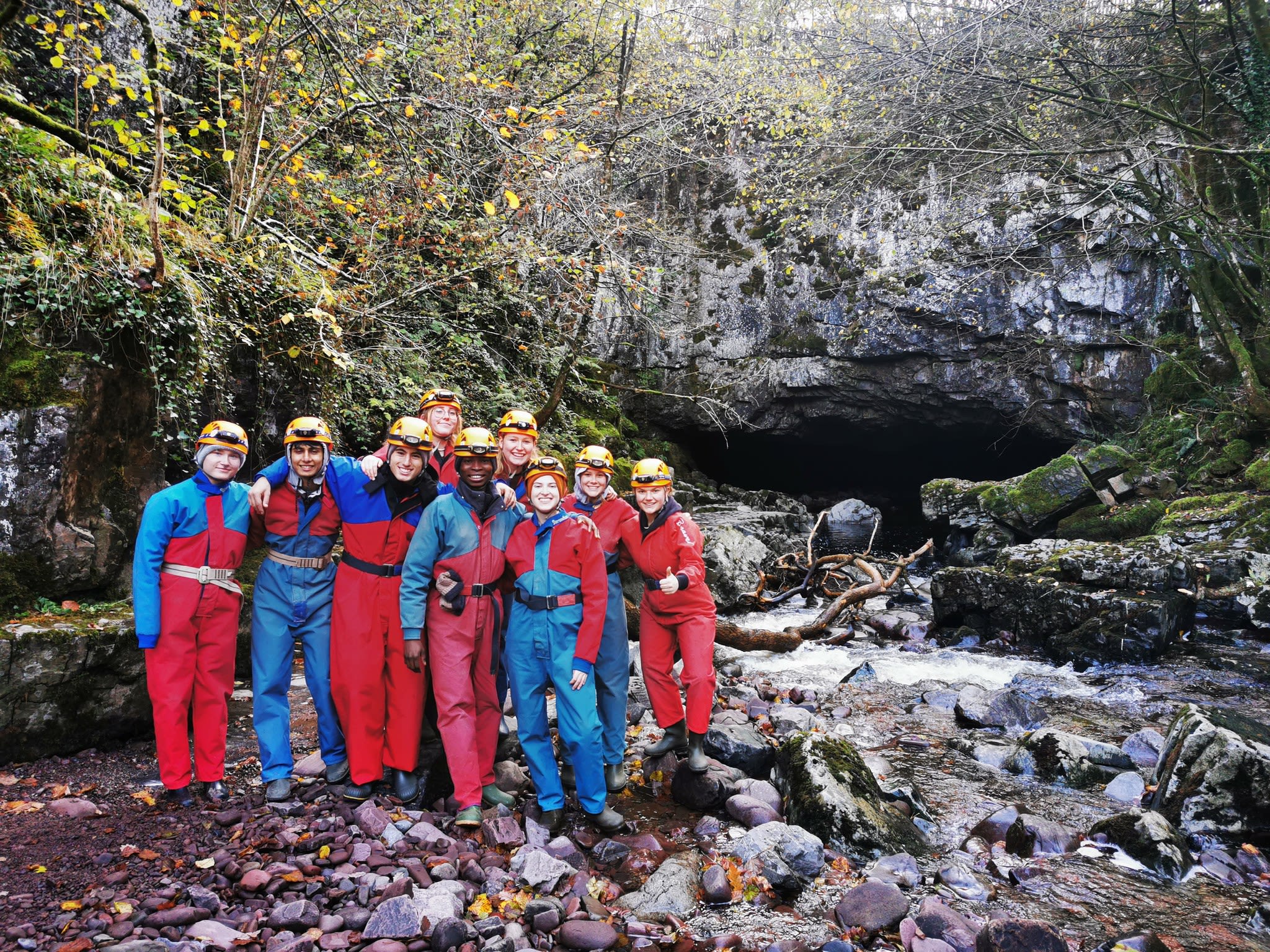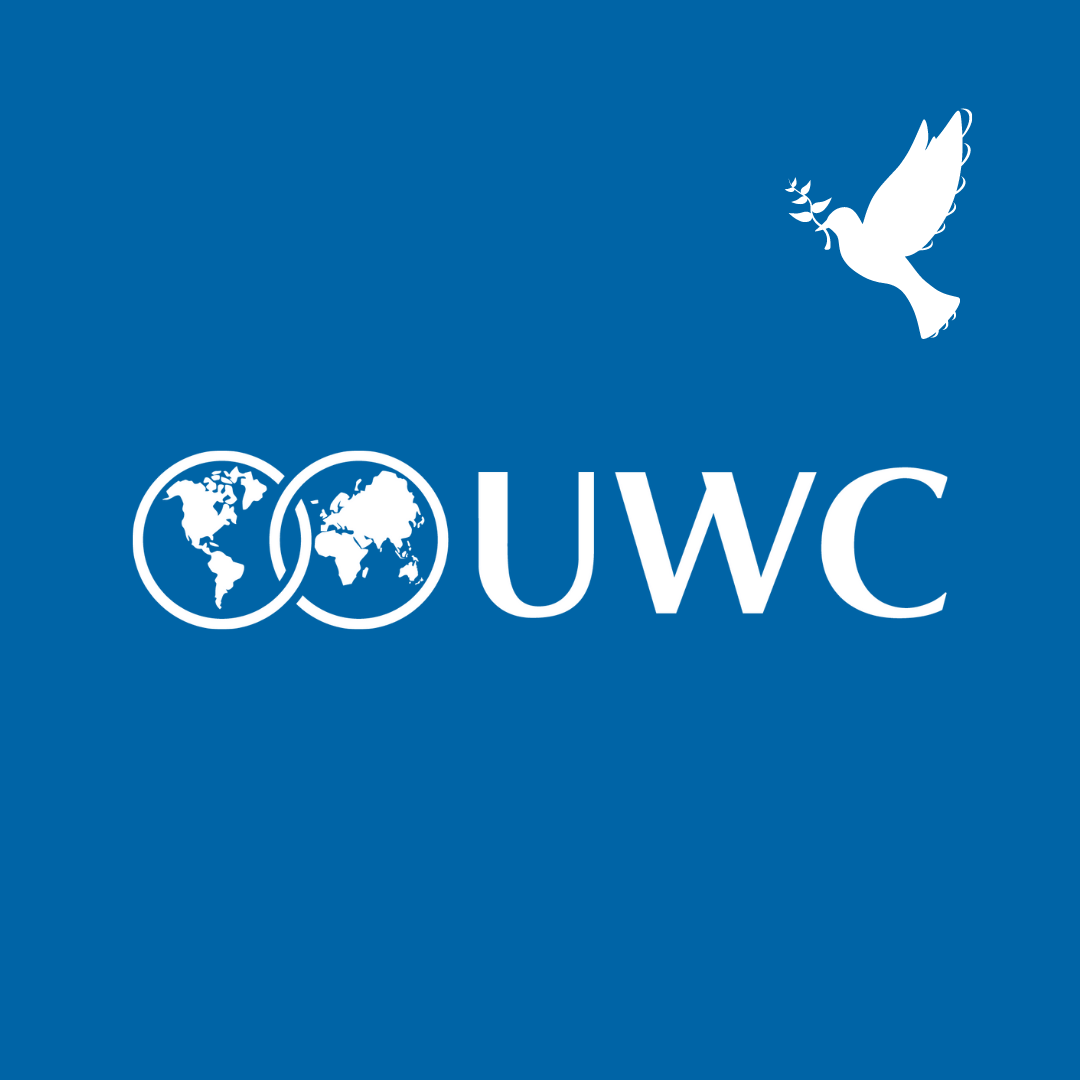FAMILIES NEWSLETTER
March 2022
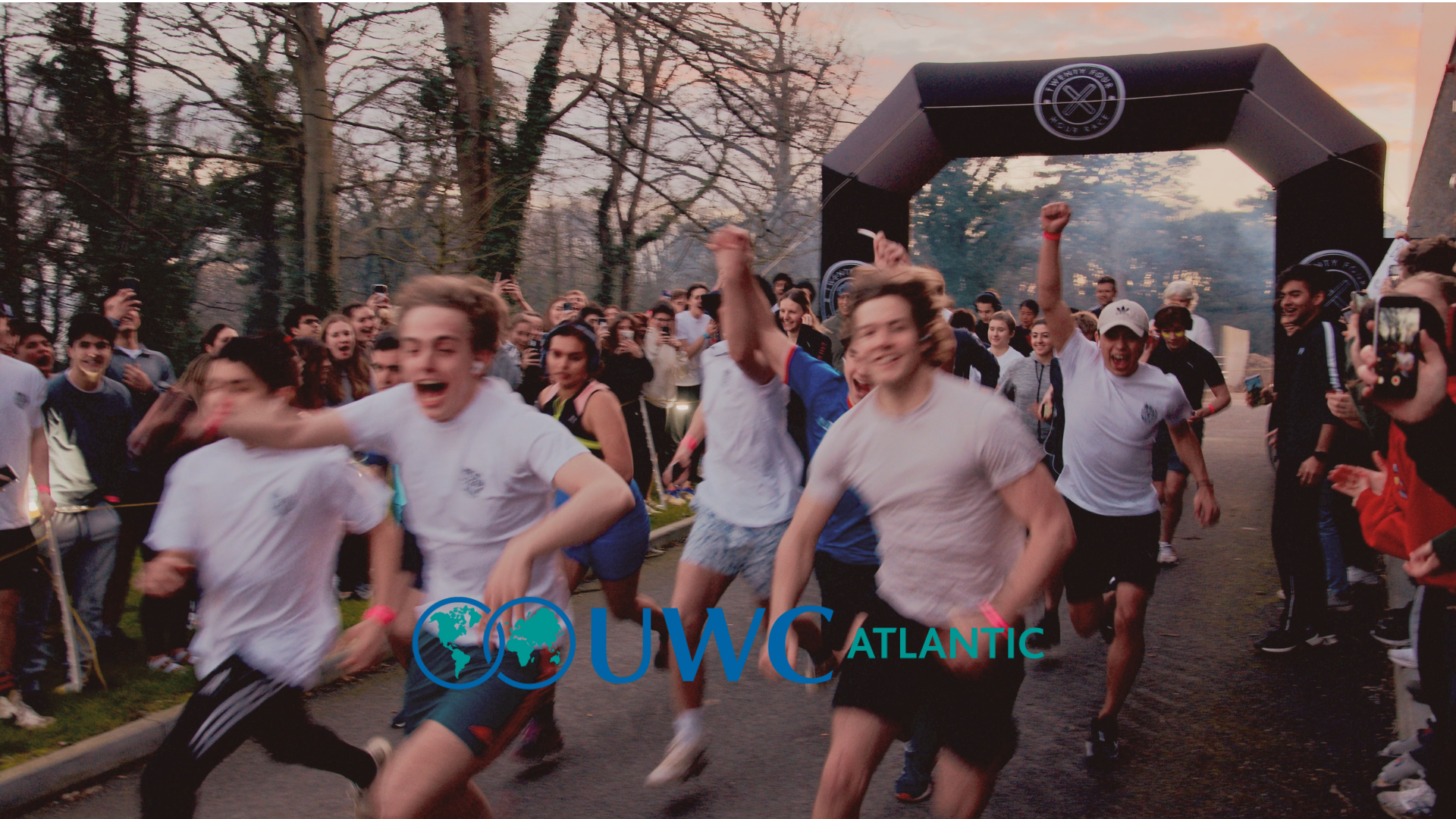
WELCOME!
Welcome to our latest newsletter. Spring is upon us and we are looking forward to increasing outdoor activities for students now that the Covid bubble has opened up and trial examinations have ended. Students now have the chance to visit the local area, and with some warmer weather on the cards, it is ideal timing for Project Week in April, an integral part of the curriculum that underpins the ethos of service and civic engagement.
As ever, students have continued to engage with important issues. This culminated in the Nirvana conference in January, a 24-hour race in March to raise awareness of human trafficking and modern slavery, and most recently a Hackathon which saw students come up with real-world solutions linked to the UN’s Sustainable Development Goals. The final term will continue in the same vein, with several important events and activities being organised by students, such as the upcoming Femicon conference.
Deputy Head/Vice Principal Kate Vincze
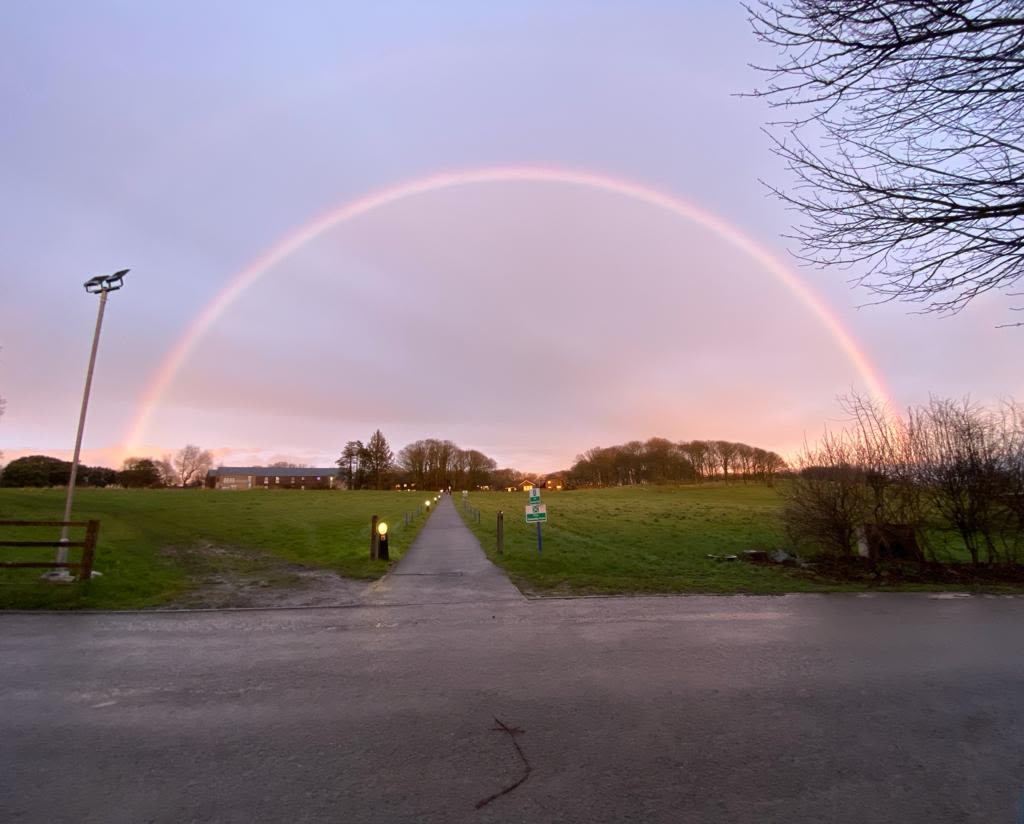
INTER UWC SUSTAINABILITY MOVEMENT
SusCo's action for systemic change across UWC
A UWC first as all 18 sites around the world are united by AC student council
Find out more👇
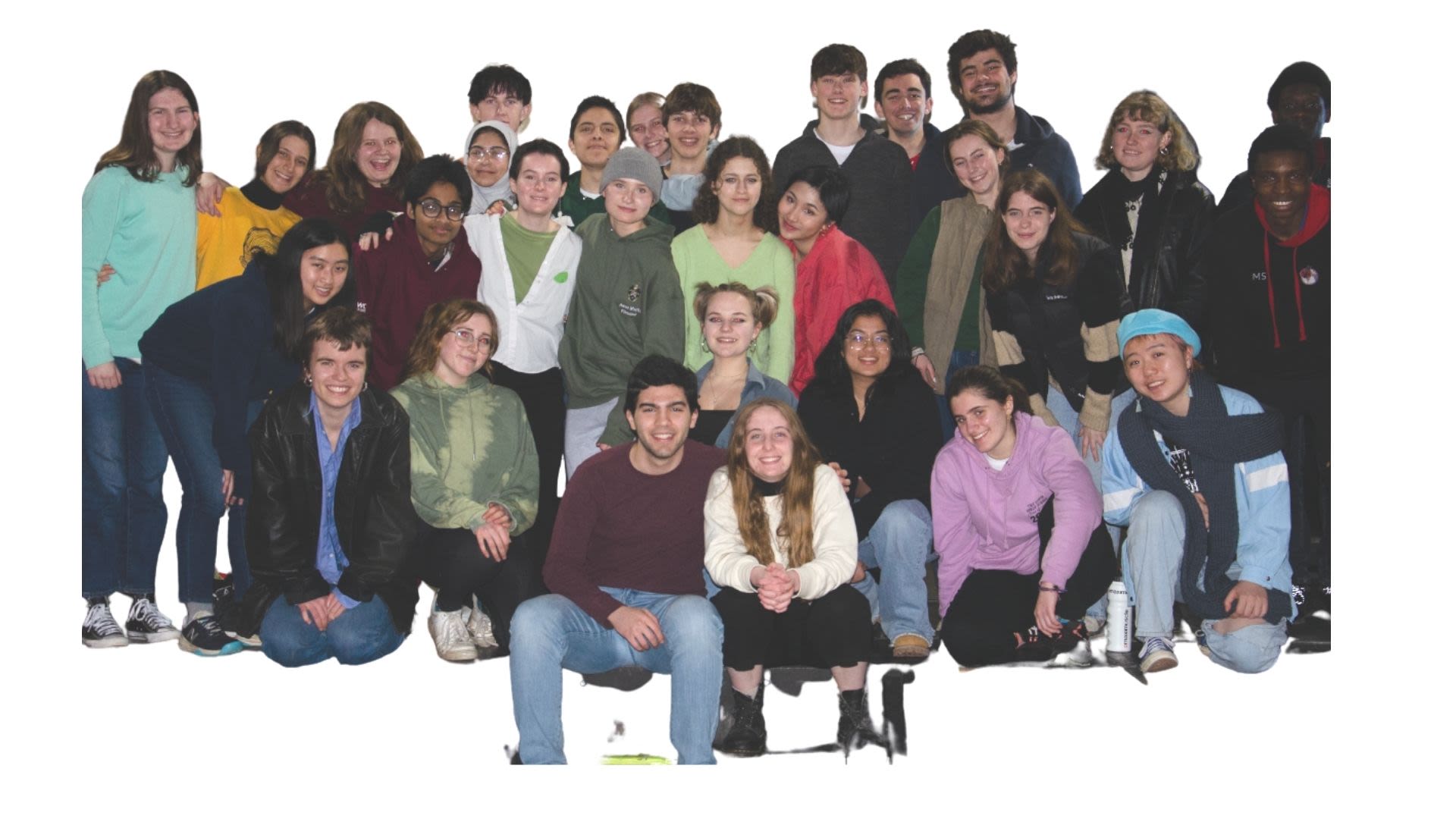
Another first and this time a world first for AC students! Our AILEM app has gone live - the first language app tailored for refugees and asylum seekers.
AILEM has been created to provide knowledge and education tailored for the needs of refugees and asylum seekers to integrate into society.
Our ethos is “Created by refugees for refugees”, to have content that is relevant to the lifecycle of a refugee or asylum seekers’ journey into integrating into society.
We want refugees and asylum seekers to drive the content and features of the app, through our refugee and asylum seeker panel we integrate their experiences, their suggestions and ideas to improve the app - which no other app in the market does so.
The result of the year-long project, the app was chosen among 810 proposals from 148 countries to be a finalist in the MIT Solv[ED] Youth Innovation Challenge.
Unemployment, discrimination, poverty and integrating into local education, are just the few examples of social challenges that refugees and asylum seekers face every single day.
But by far language is typically the first and most direct challenge as they arrive in a foreign country. External tutors can be expensive and some may not have the means and time to travel into the city to attend classes, especially if they have to balance work.
We are continuing to polish the app and upload more content. Currently we are teaching French with our AILEM curriculum but soon teaching English.
Additionally, our map feature is available for 5 user languages (English, Arabic, Pashto, Dari and Ukrainian) to teach Croatian, Czech, Polish, Romanian, English, French and Japanese.
Massive thank you to every single student involved in driving the app from translations, curriculum, marketing and more. We want to use our platform to young people to also take action and make a difference.
AILEM is also working with the Atlantic Pacific charity to create a booklet that can provide sea safety information and language support tailored for refugees and asylum seekers.
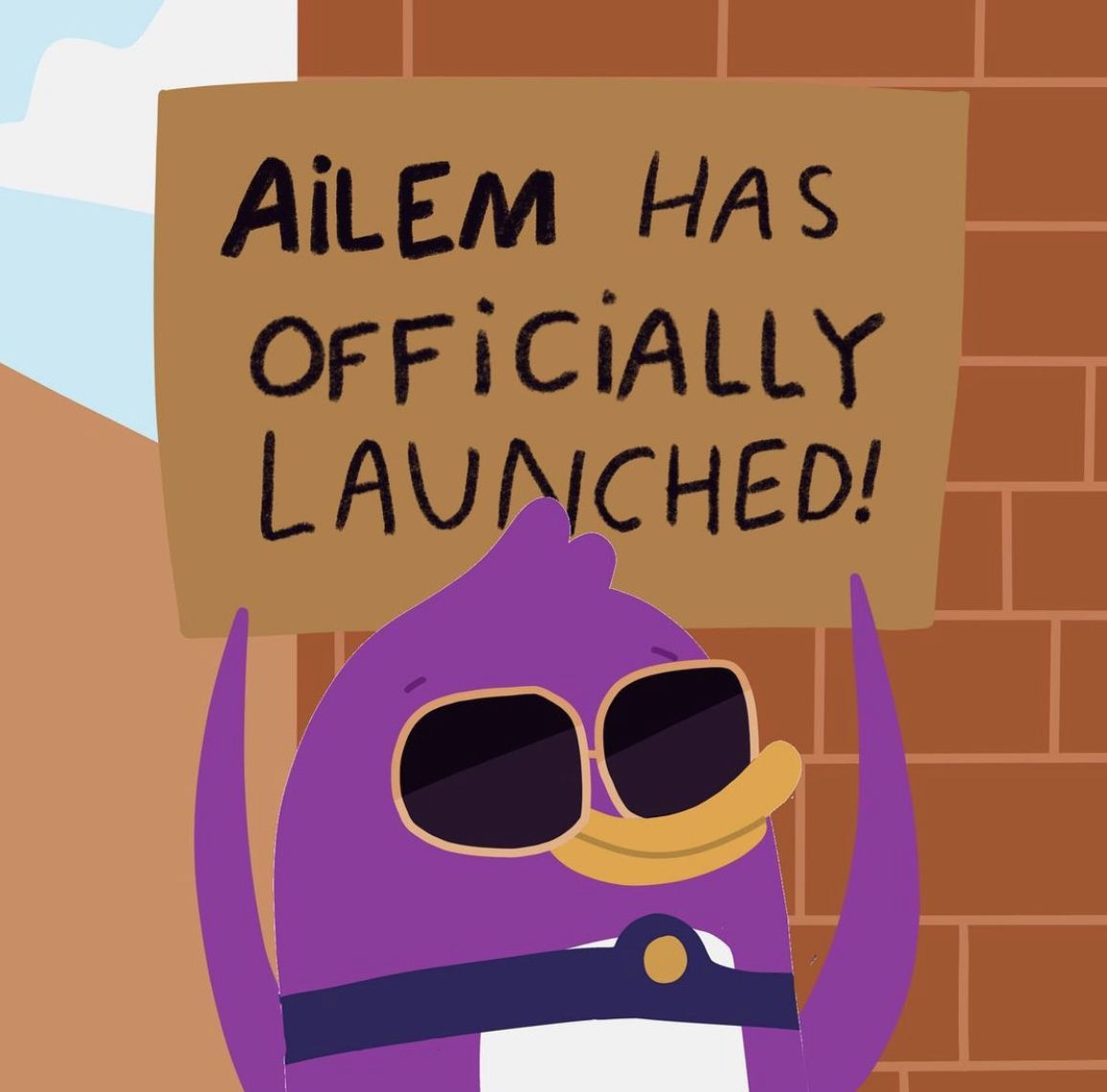
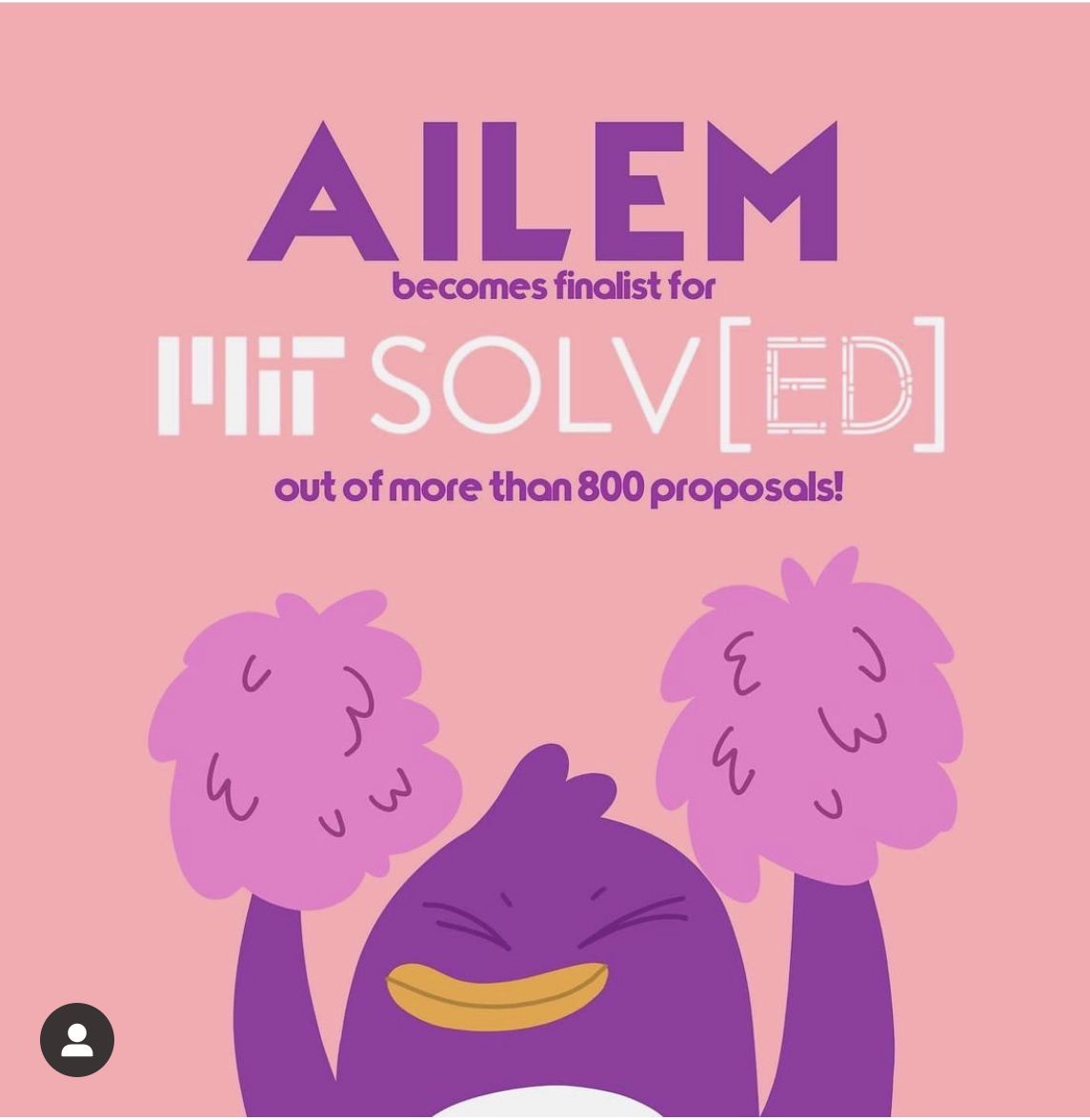
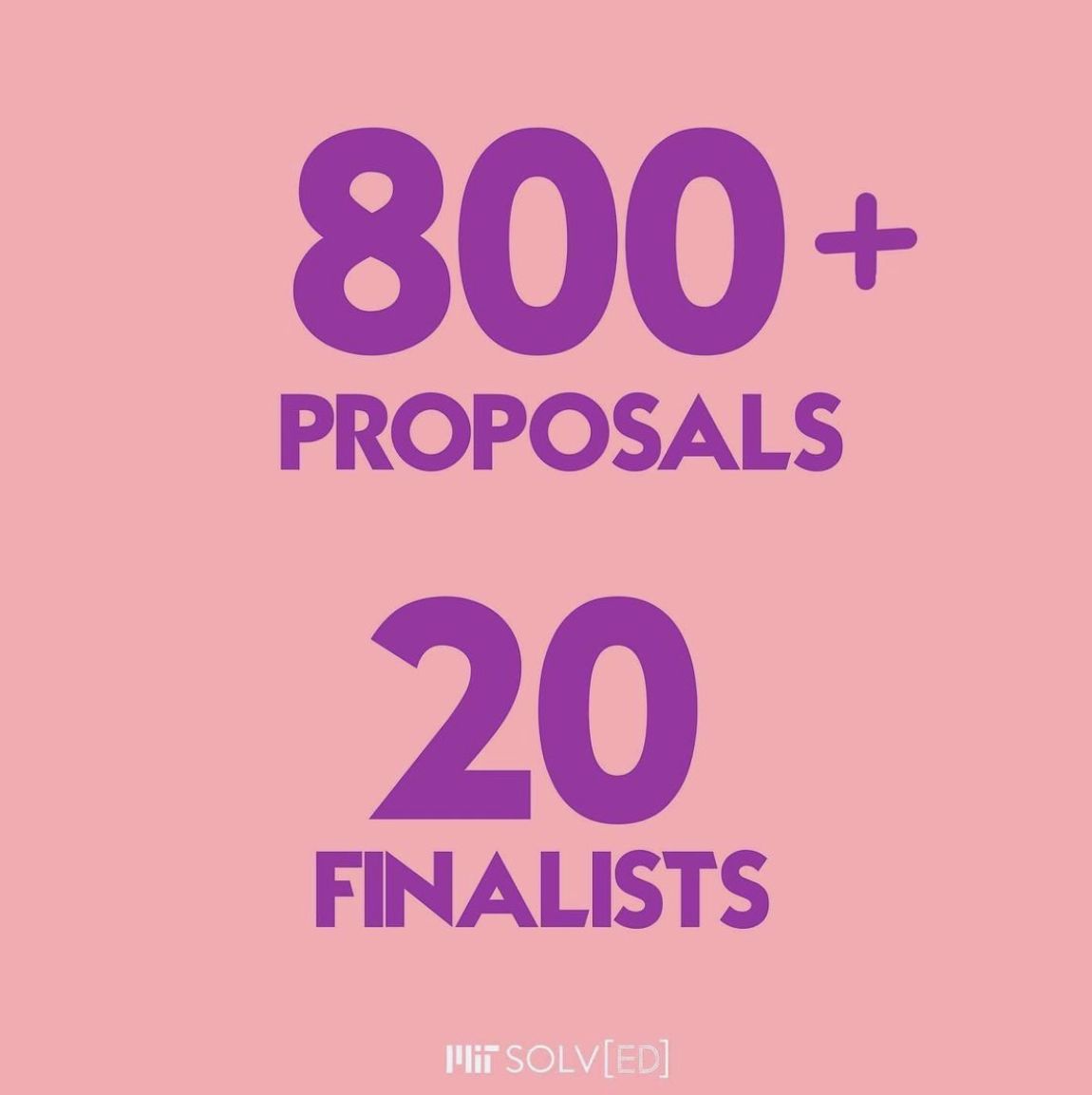
NIRVANA
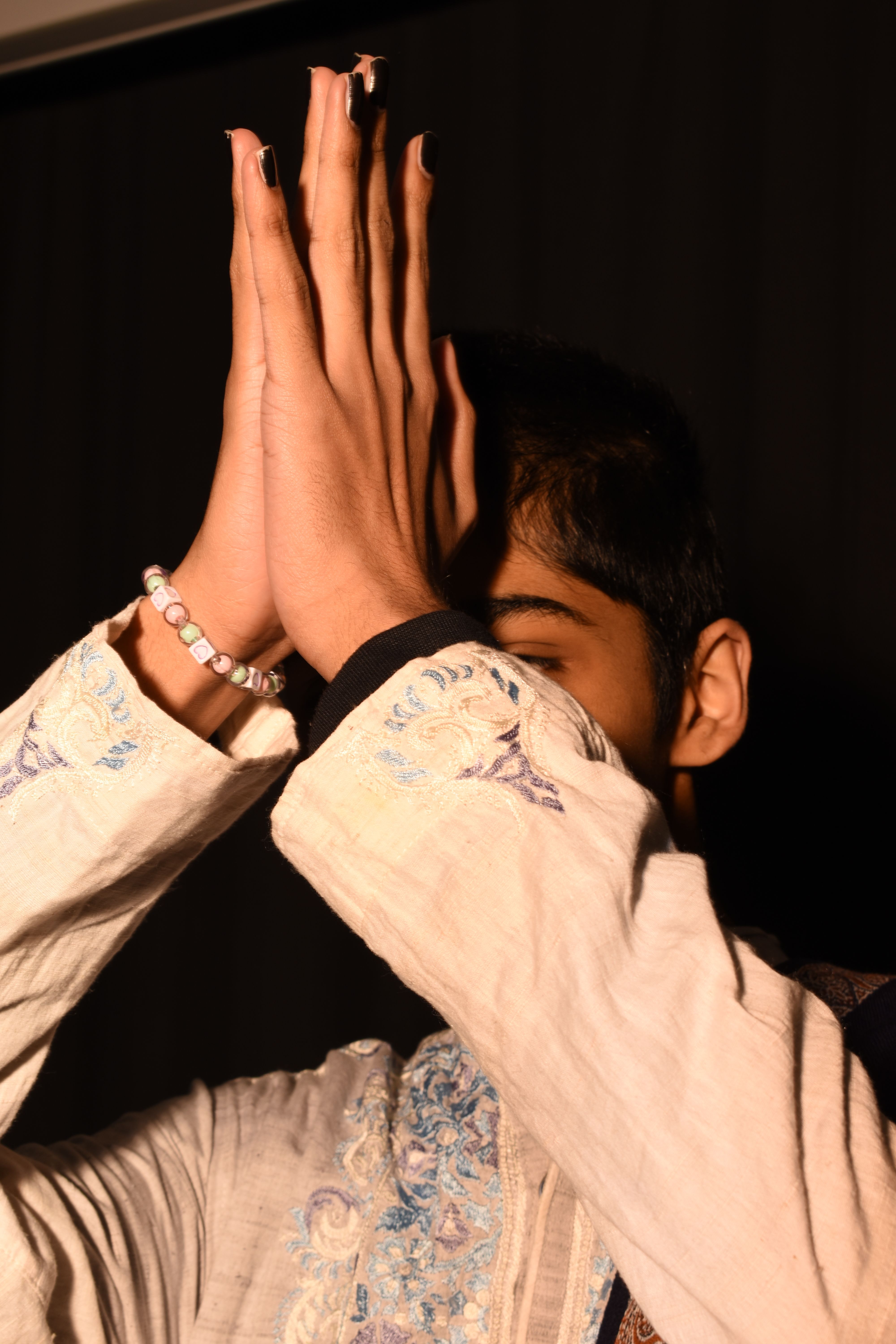
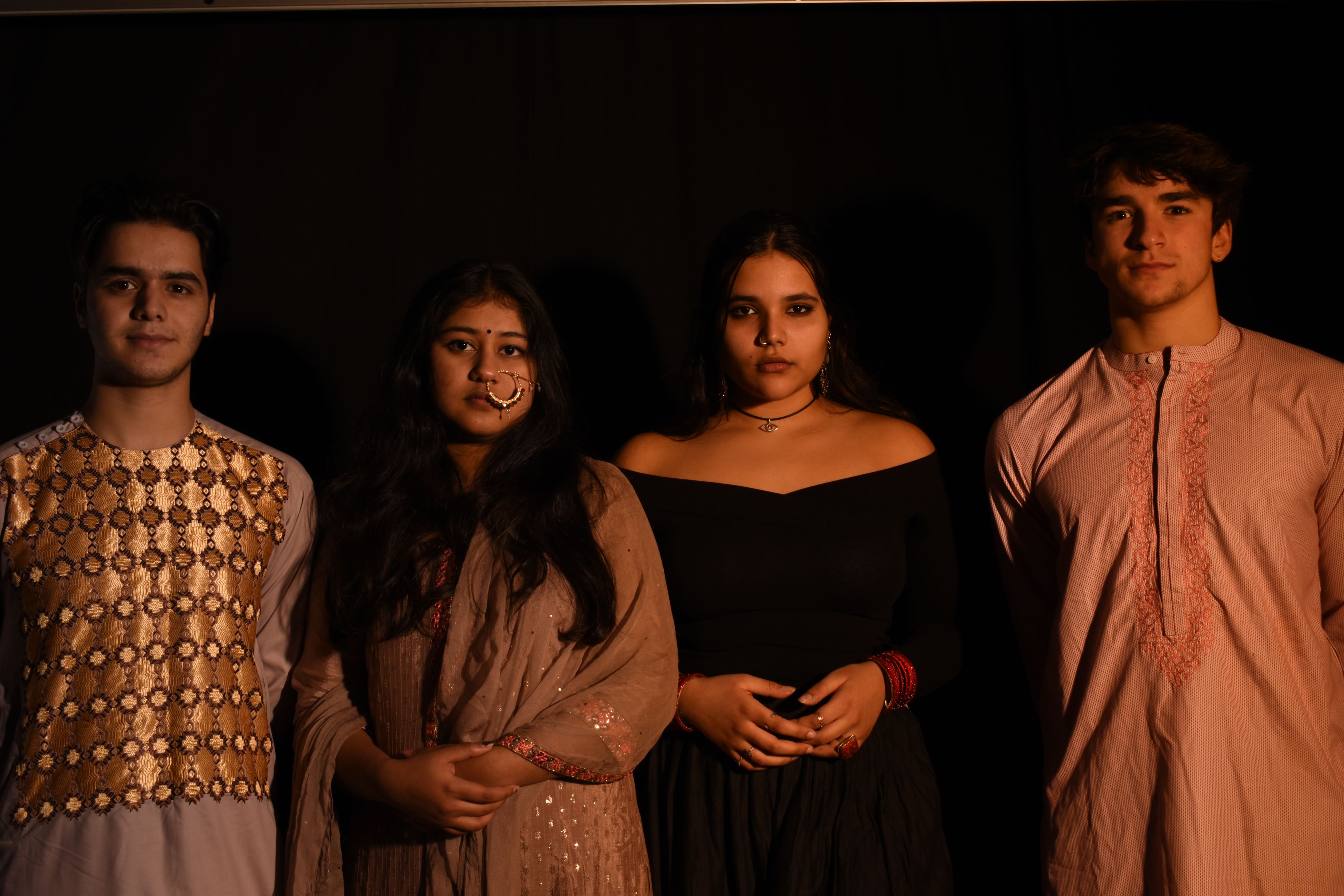
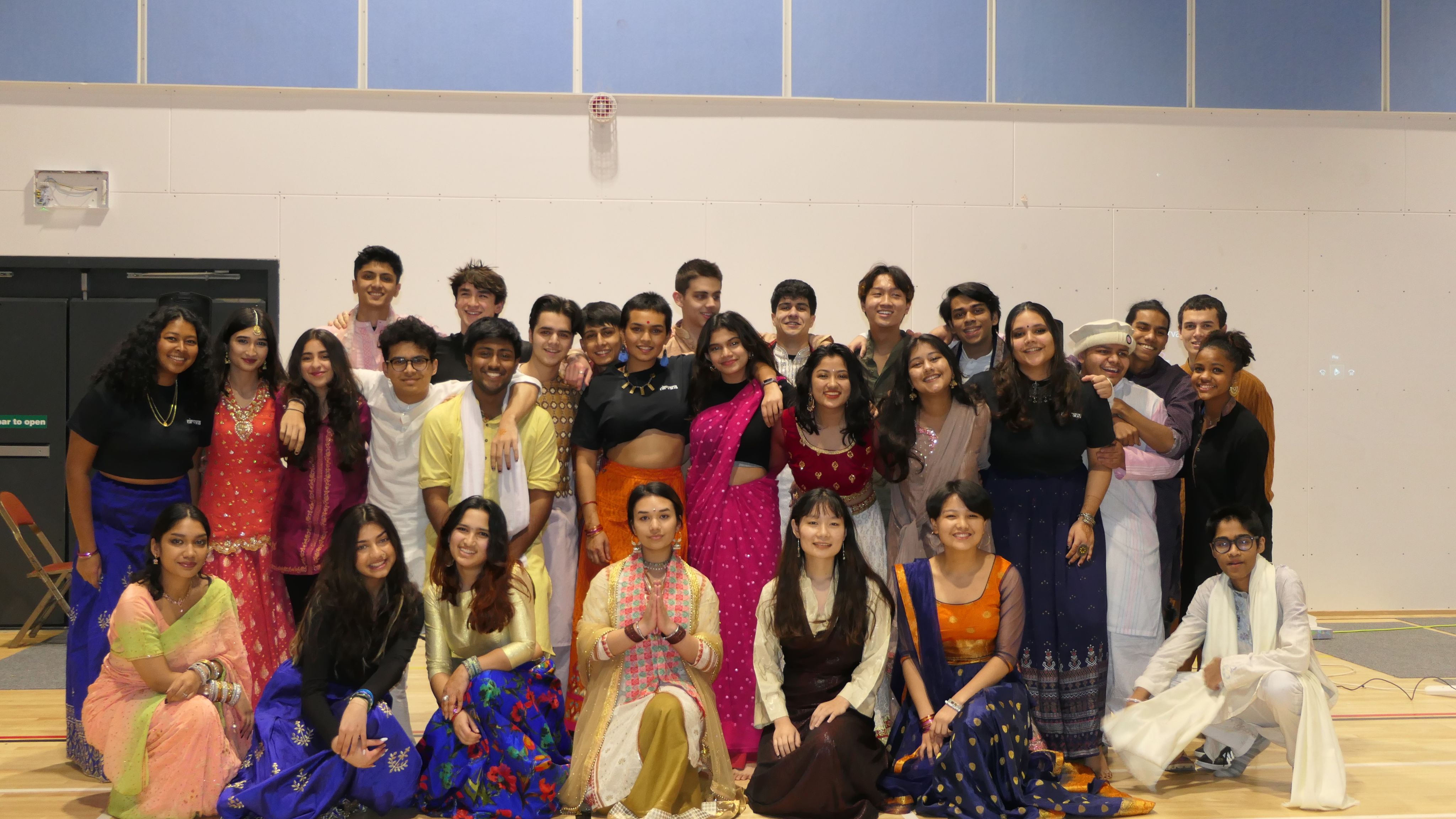
January saw the launch of Nirvana, a conference which aimed to educate students and staff about the Indian Subcontinent, its culture and religious beliefs
Over the two day period, students from diverse backgrounds gave workshops on topics ranging from food and sport to cultural and social issues in the Indian Subcontinent. Underpinned by performances, speeches, poems, and more, the conference aimed to bring students together to learn and understand each other in the truest and purest way possible.
The conference was organised by the college’s Subcontinent National Group, who wanted to ensure that people and peace were present throughout the two days.
"With strength, unity and peace as its core values, this conference was an outlet for us to dive into our roots and celebrate our identity in its rawest and most beautiful form," said organisers Aisha Shams, Lea Sorabjee, Leena Mangaldas, Aliza Regmi and Vasu Sinha.
LIGHTHOUSE HACKATHON
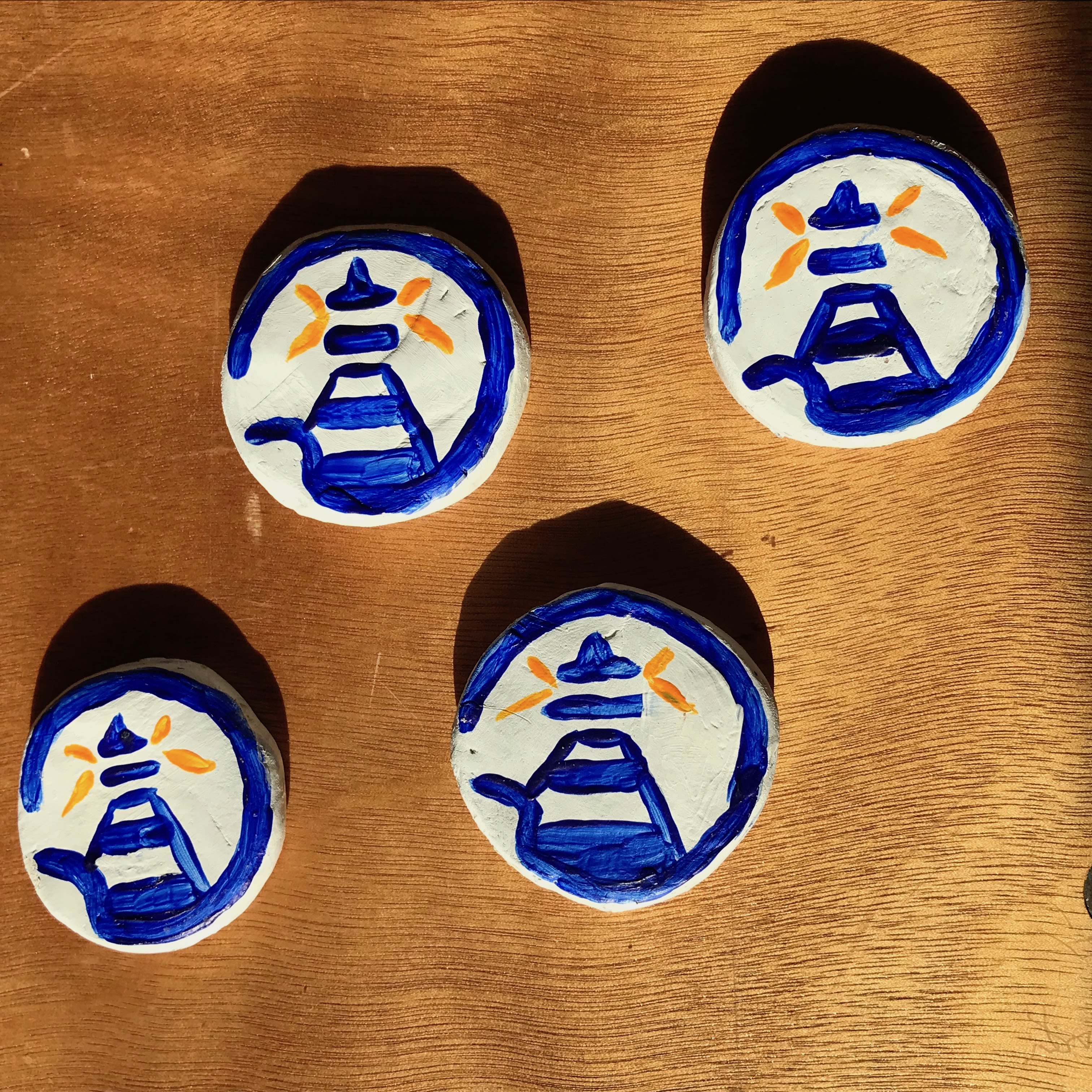
Our on-campus entrepreneurial hub Lighthouse continues to support projects inspiring social and environmental change in the world, with its second annual Hackathon from 12-13 March.
Lighthouse gives students a space in which they can learn, grow and develop their passions as projects, while equipping them with skills and knowledge to make the difference they want to see in the world.
Whereas normally a Hackathon is associated with coding and programming solutions, the Lighthouse Hackathon expands on this concept, by drawing on cultural and social solutions too, rather than just those supported by technology.
In collaboration with the Changemaker Curriculum, participants had the opportunity to bring in their own skills and learn new ones from their teammates, mentors, and workshops throughout the event. Seven teams, made up of 44 students, came together for 24 hours to solve one serious problem that the world is facing today.
The Hackathon once again focused on one of the UN’s Sustainable Development Goals (SDGs). Last year saw students work together to help solve food waste (SDG 12), and this year on the impact of urbanisation (SDG 11), with a focus on making cities and human settlements inclusive, safe, resilient and sustainable.
According to the World Health Organisation, increasing urbanisation poses a number of challenges, including inadequate housing & transport, poor sanitation & waste management, air pollution, and water & soil contamination, to name just a few. And with the world’s population living in urban areas expected to increase to 68% by 2050, this year’s Hackathon brought students together, with the support of alumni and friends of UWC Atlantic, to create a solution that targeted one of these challenges.
External expert mentors, speakers, and judges (made up of alumni and friends of the college) who came to the Hackathon commented on how excited they were to interact with the students and witness their problem solving and project development skills. We are always on the lookout for others to mentor students, hold workshops, and help judge pitches, so if you would like to be involved next year, or in other ongoing Lighthouse projects, please do get in touch.
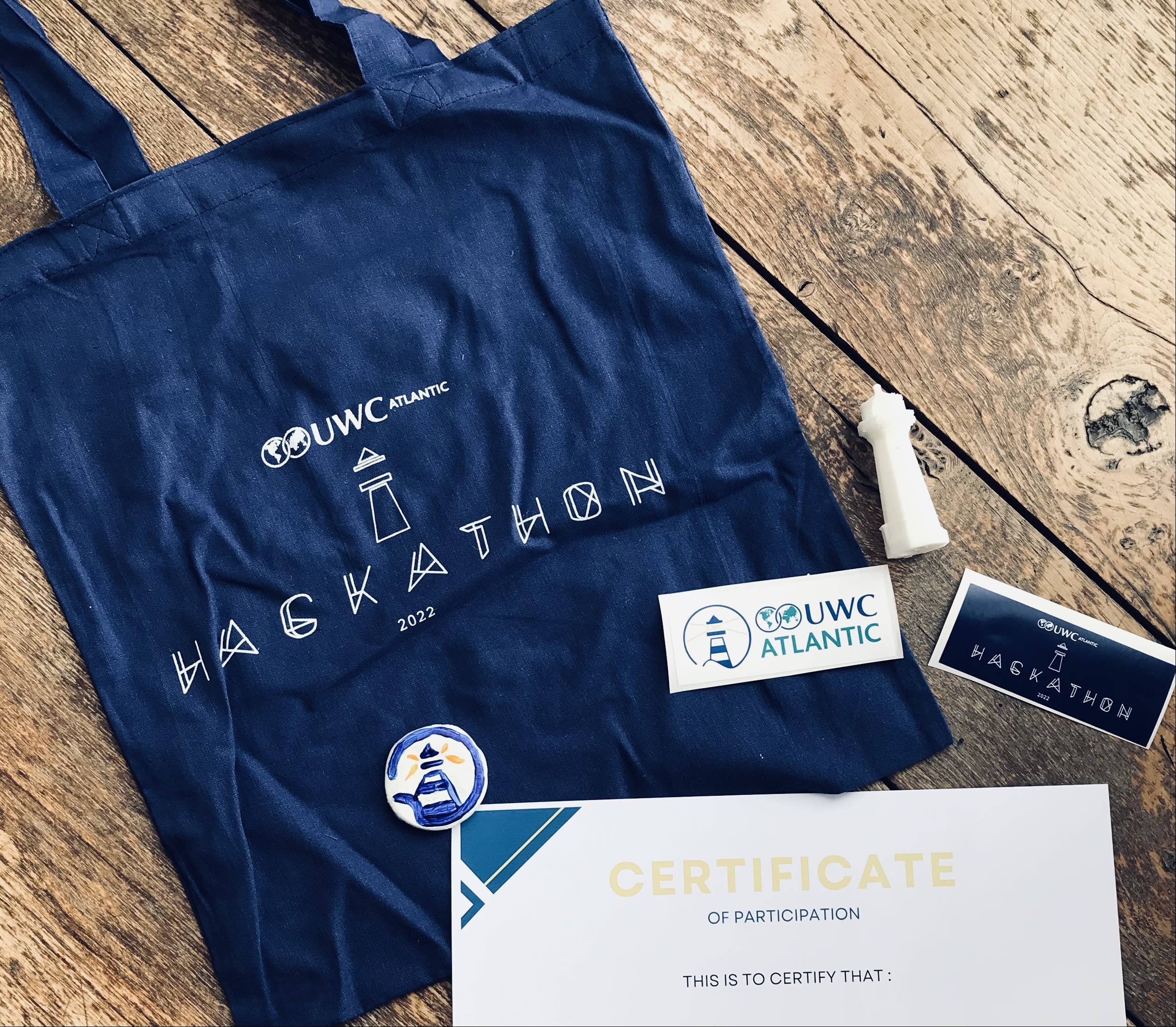
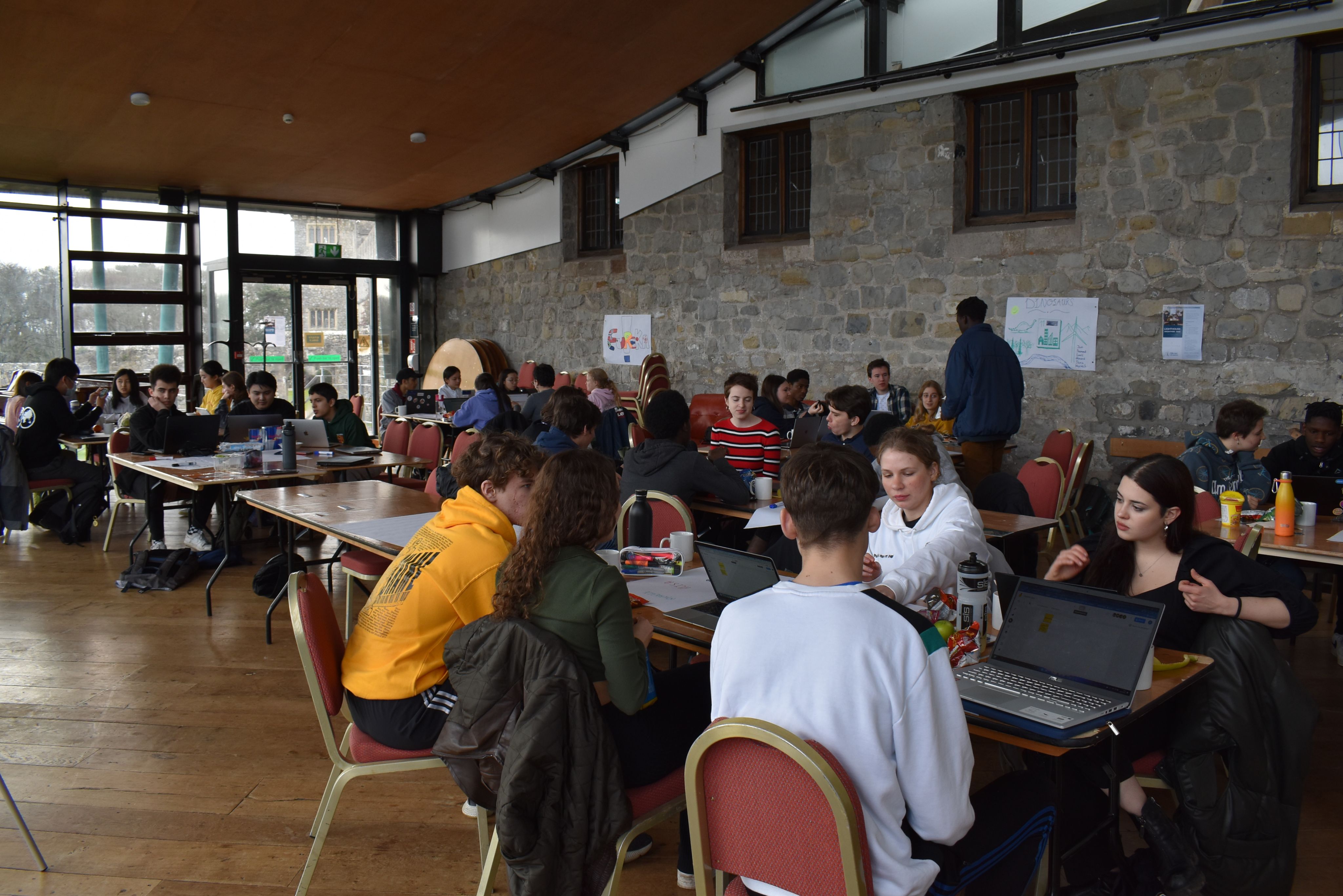
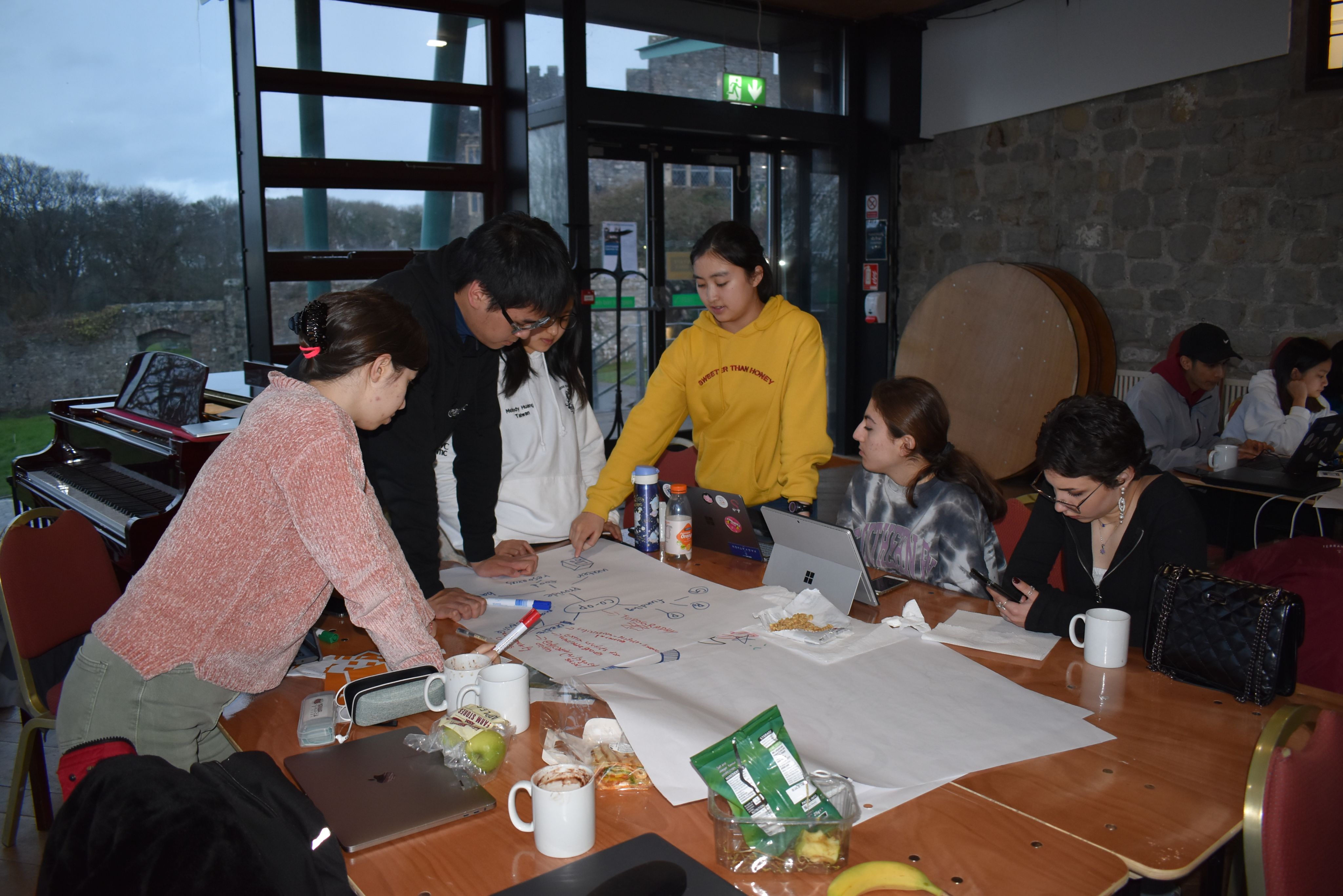
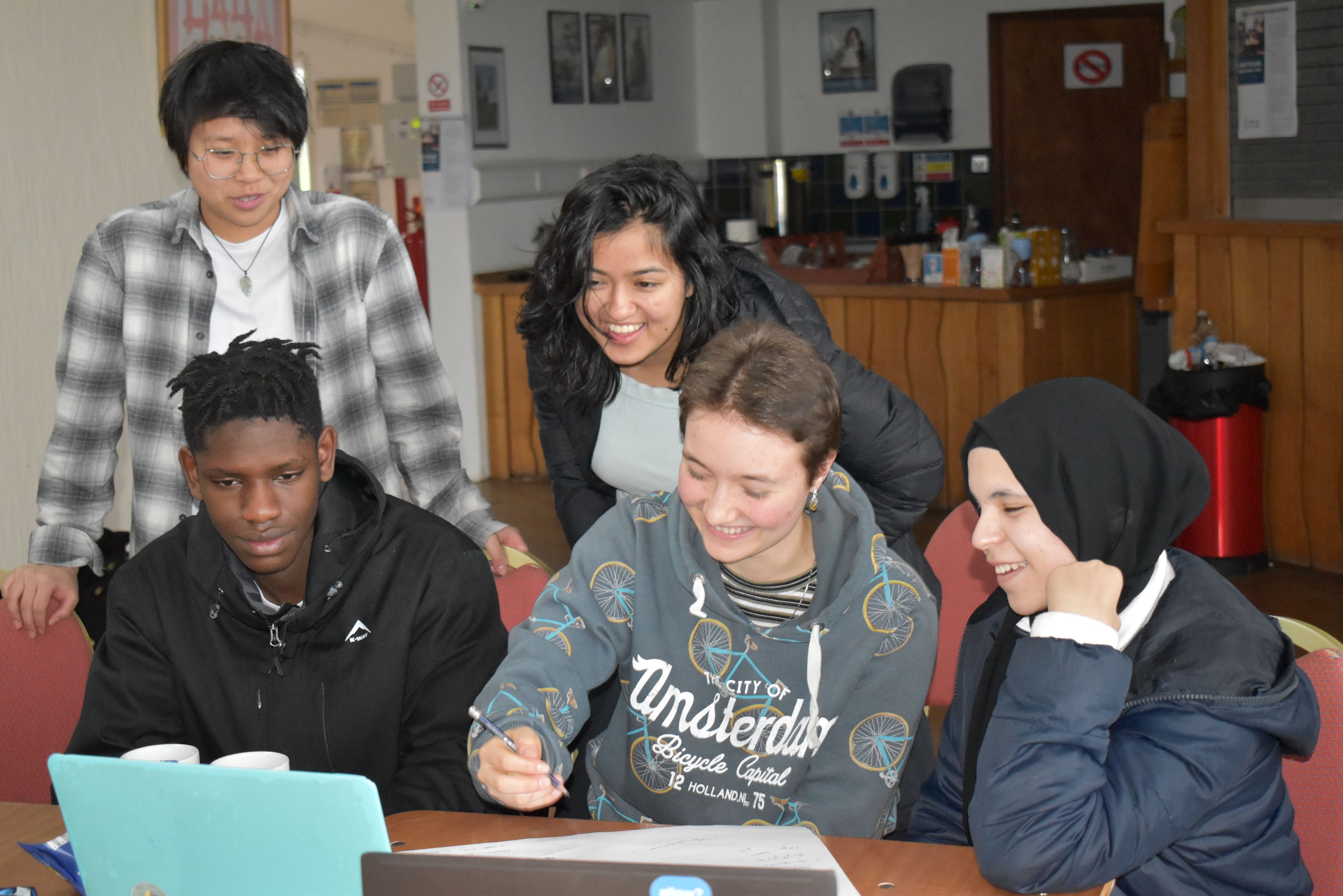
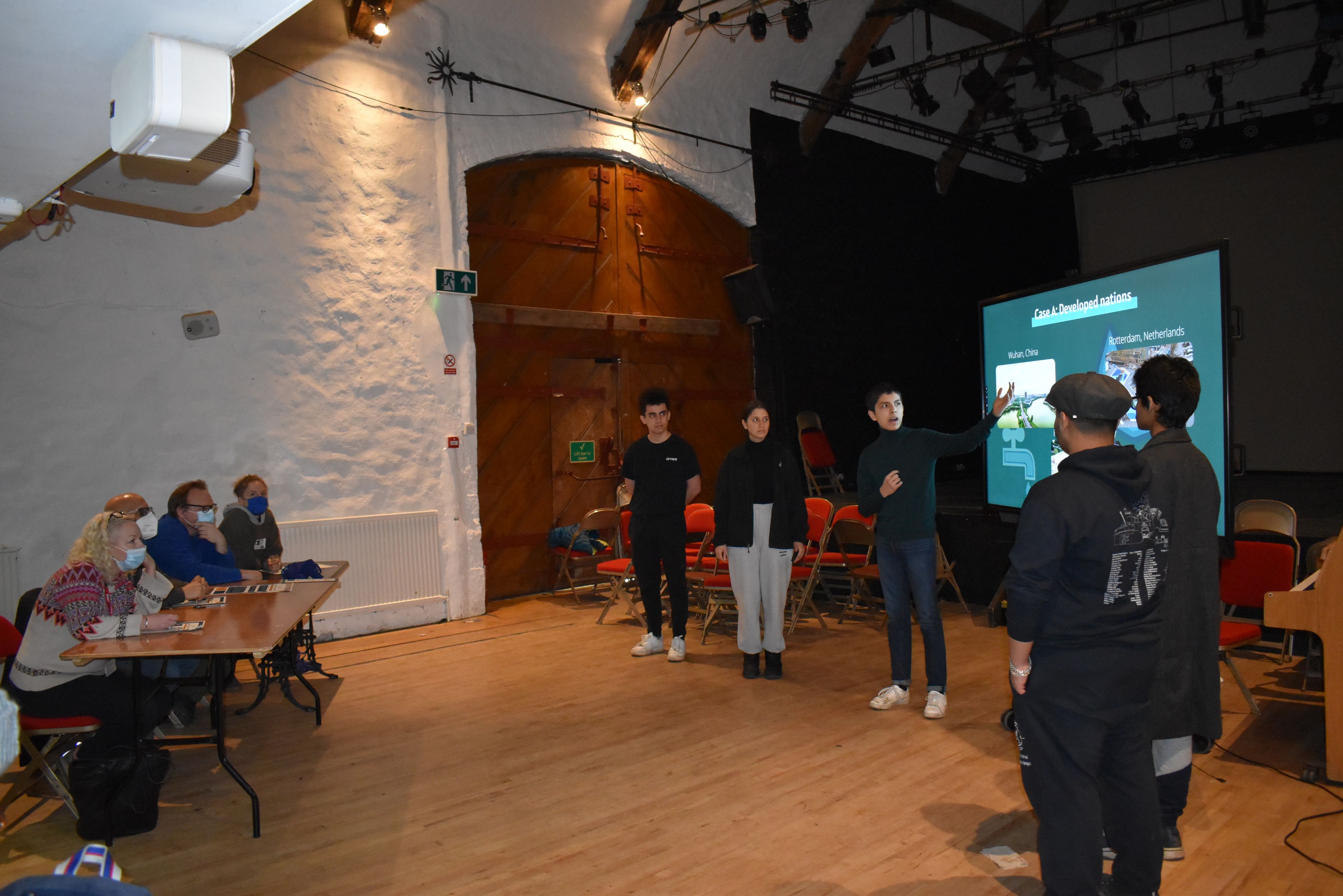




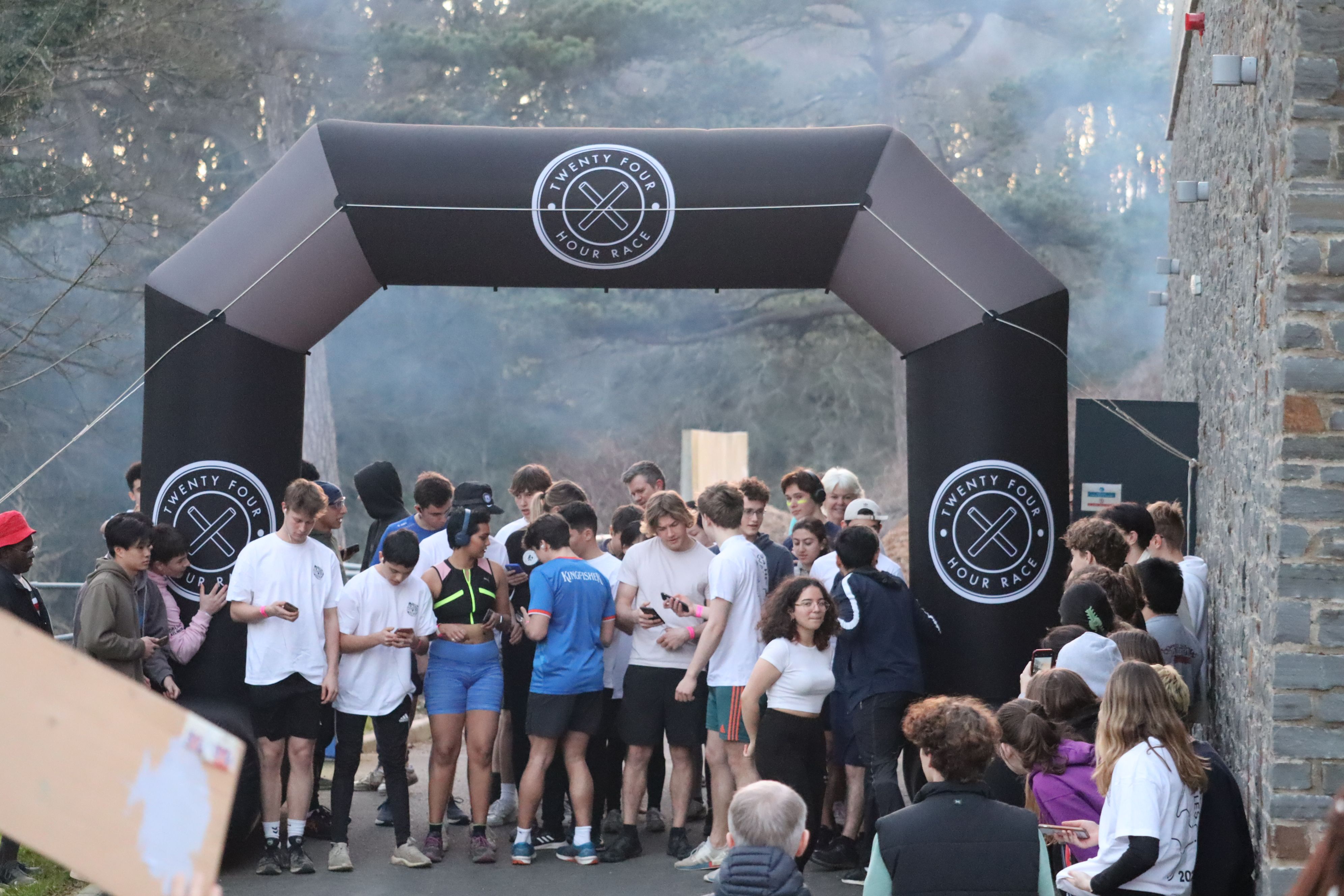
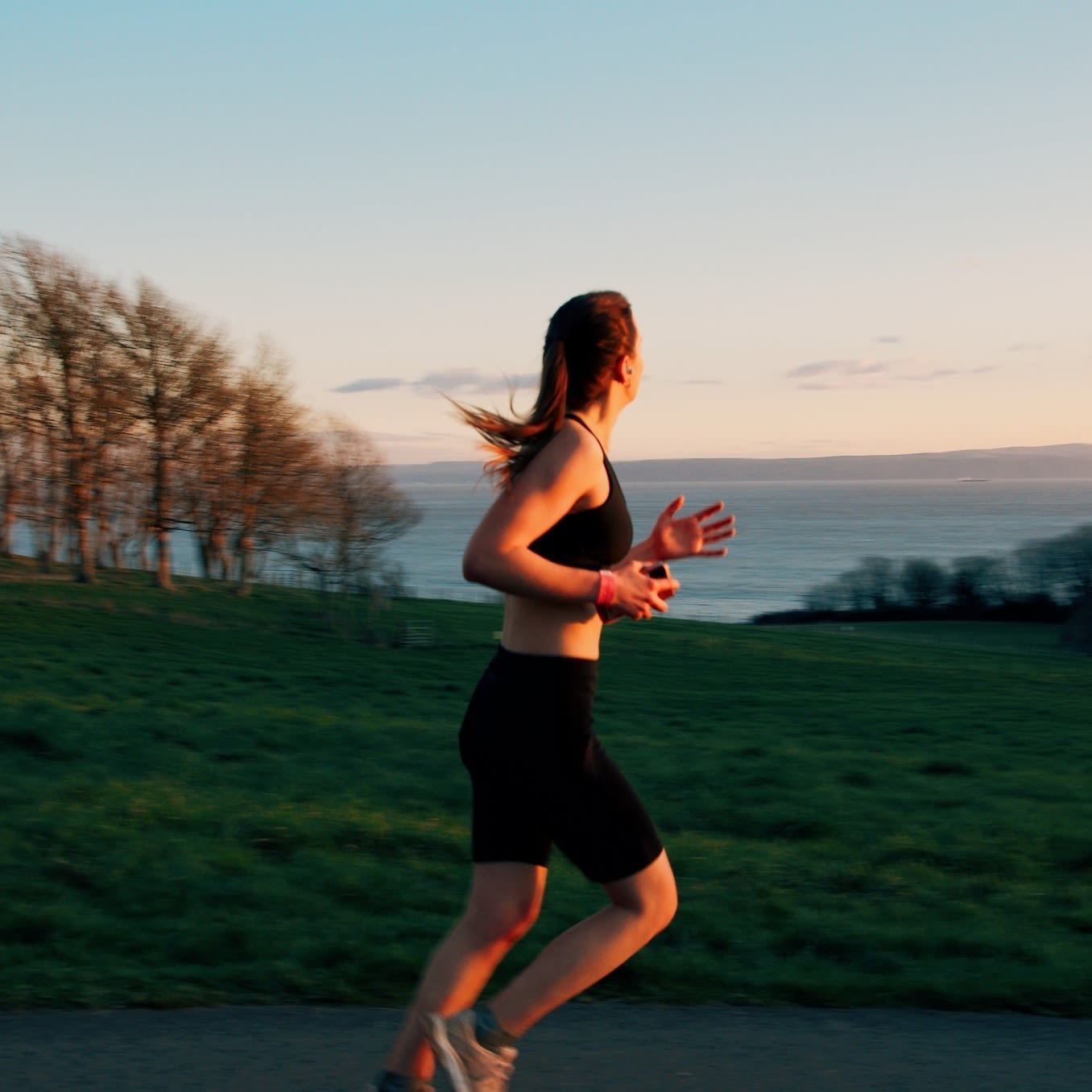
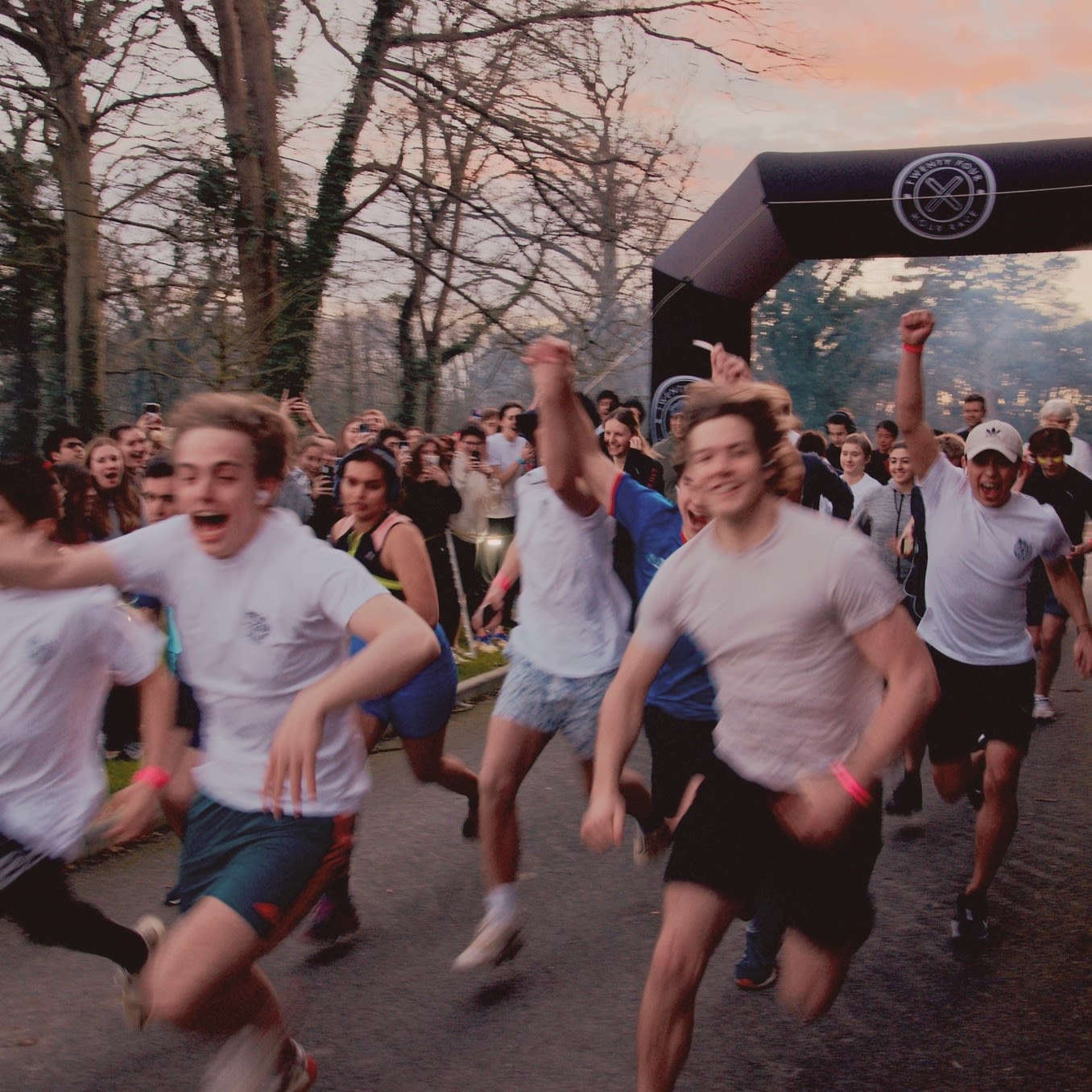
24-HOUR RACE
On 4-5 March, the college played host to 24 Hour Race Wales, an important awareness campaign to end human trafficking and modern slavery around the world.
The race was completely student led, with 190 students running and 80 others involved as volunteers and marshalls, all of whom worked tirelessly throughout the day and night. They made up 23 teams, including three staff teams and a team consisting of governors together with staff from the UWC International Office. More than £16,000 was raised in the process.
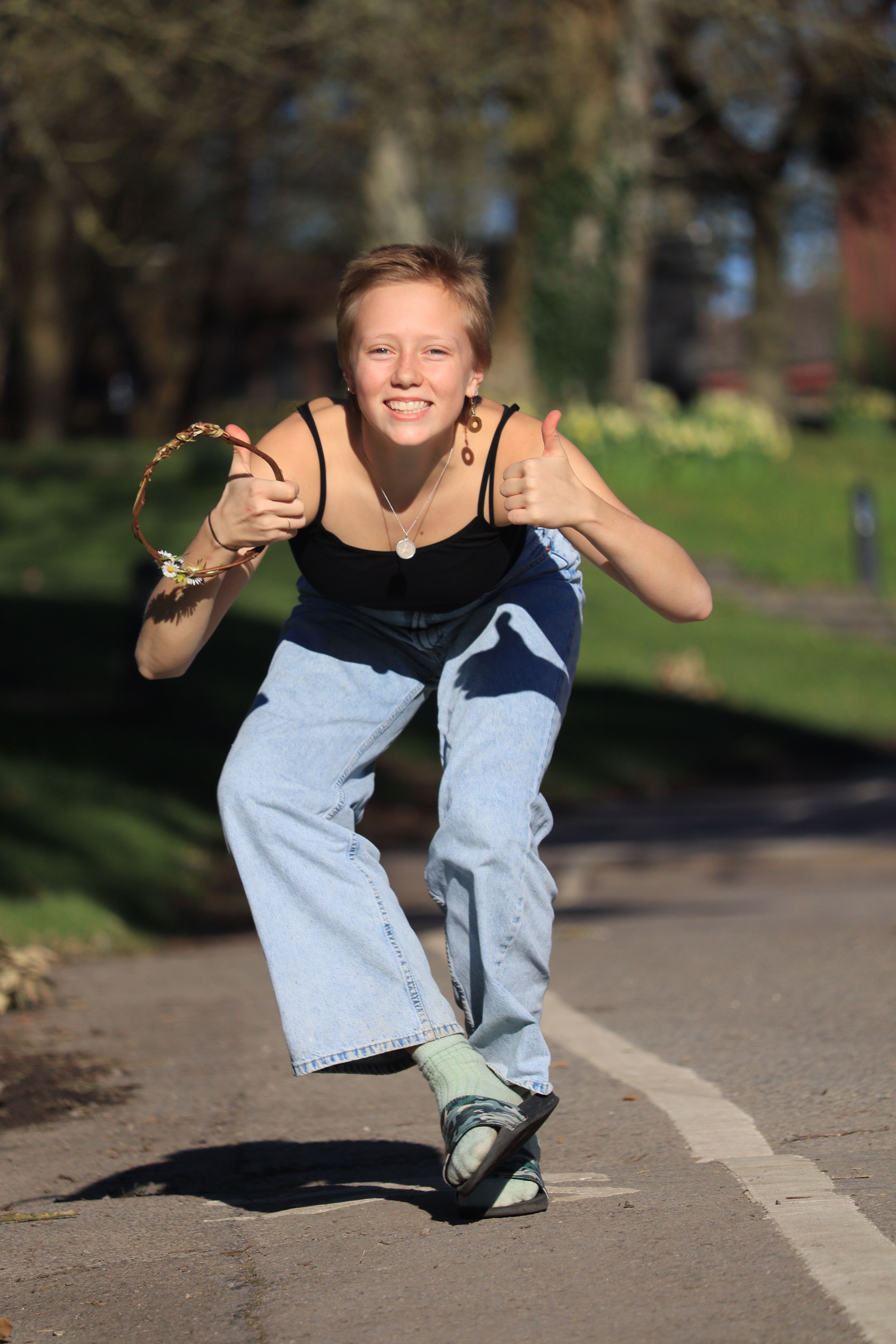
24 Hour Race Wales is part of Running To Stop The Traffik, a Hong Kong based charity raising funds in support of the estimated 40 million people globally in slavery, 70% of whom are women and children.
Since 2010 their campaign has raised more than £1m in support of the abolition of modern slavery and human traffiking, funding 2,000 rescues and arrests in the process.
SEAFRONT UPDATE
We are pleased to report that the seafront has seen an increase in activity since the start of the new year and the easing of Covid restrictions. Students are now able to take part in a range of adventurous activities, including Kayaking, Paddleboarding, swimming, caving and climbing, alongside learning crucial life saving skills.
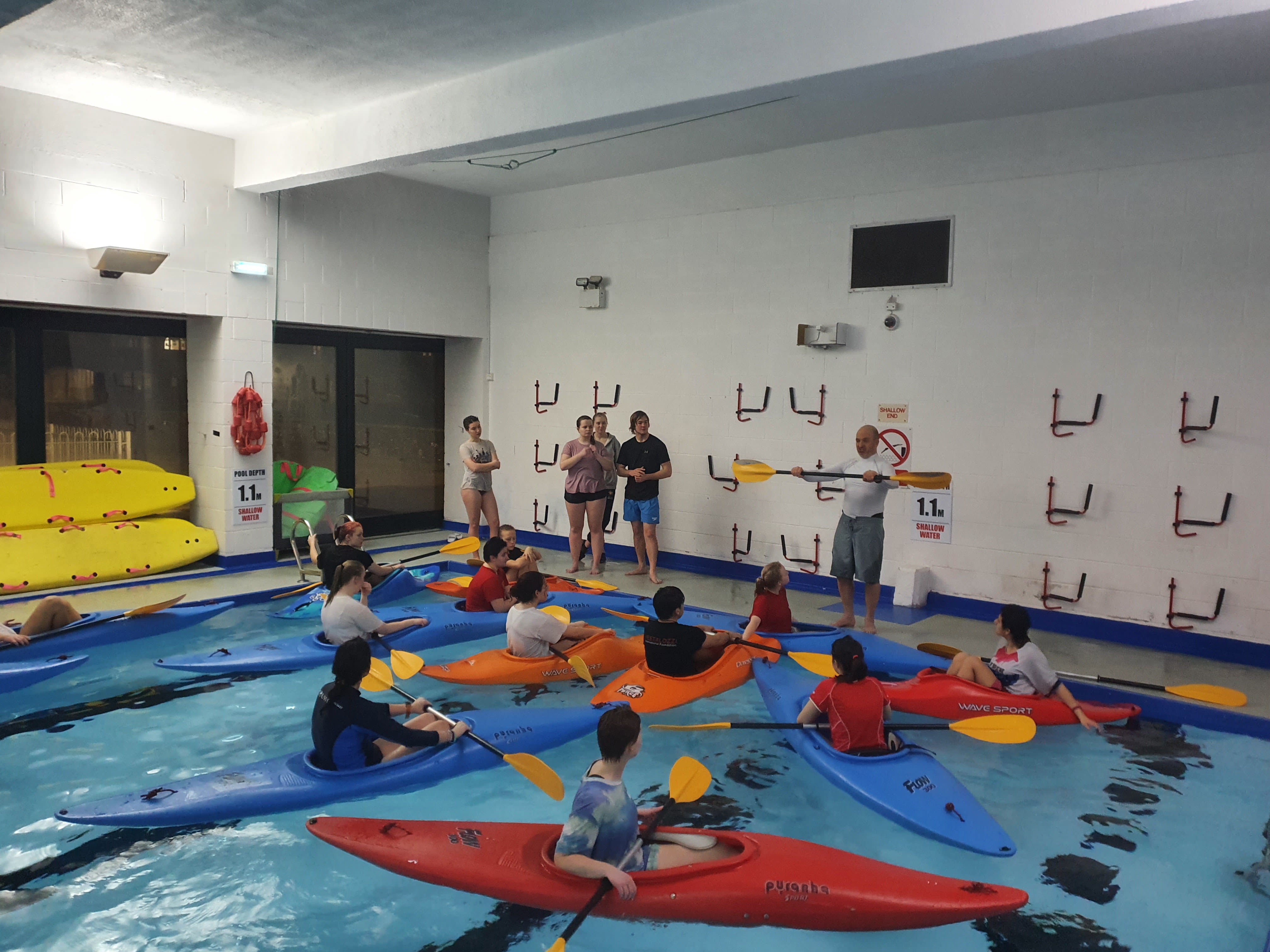
Lifesaving has played an important part of the Atlantic experience since we first opened, and students are now able to train as pool and beach lifeguards too. We have also continued to form closer links with the National Coastwatch Institution (NCI) - a voluntary organisation with stations along the UK coast, providing vital support when people are in trouble at sea. The NCI has a post on the college seafront and in February Signe became the first Cadet in the National Coastwatch cadet programme. Pictured is Signe, who has been learning nautical skills and practicing her VHF procedure, broadcasting to local vessels and giving them vital information.
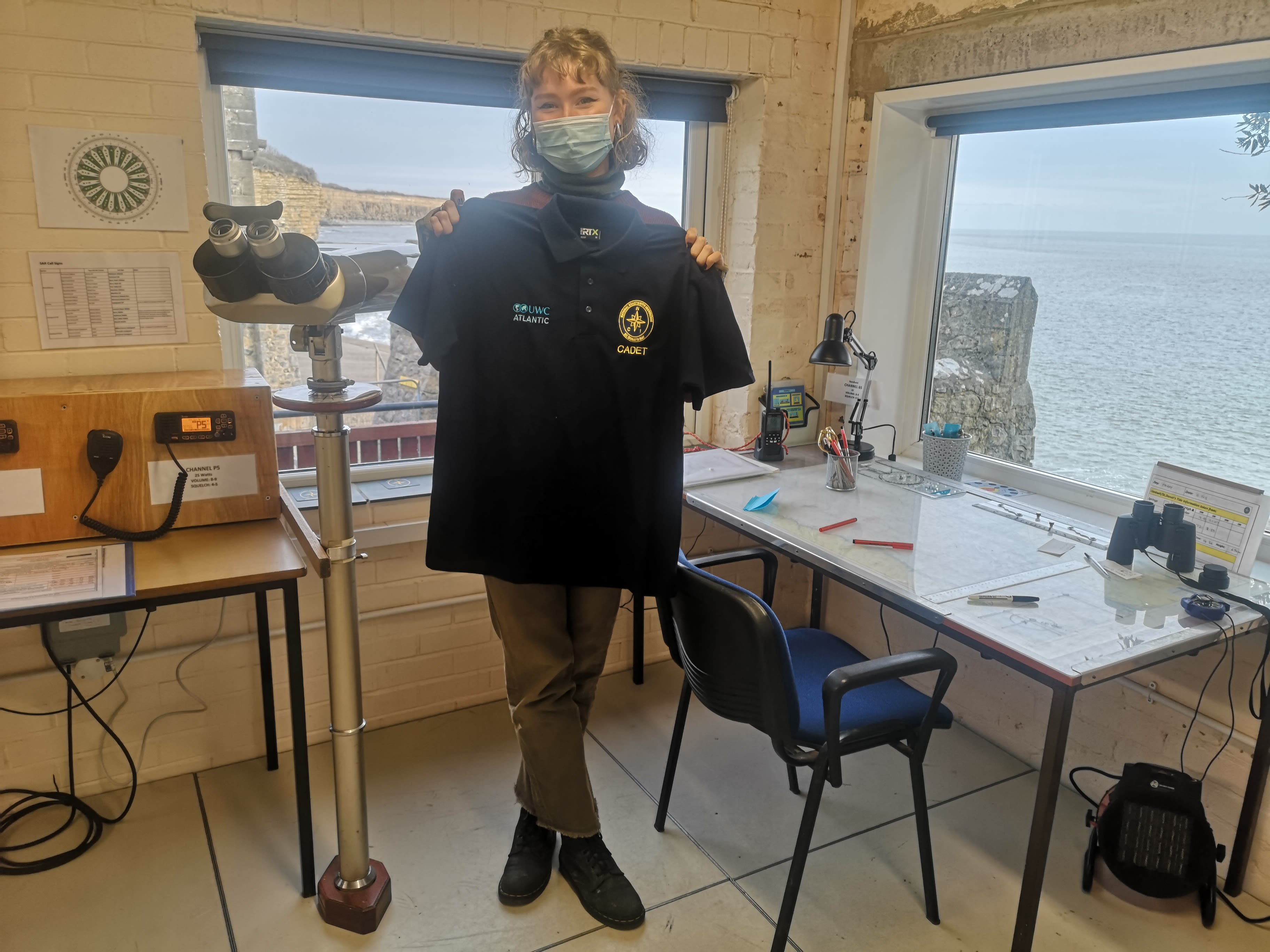
Our outdoor servicing team has also been in action to ensure the seafront is kept clean and tidy for others to enjoy. Pictured below is a group of students taking part in one of their regular beach cleaning sessions.
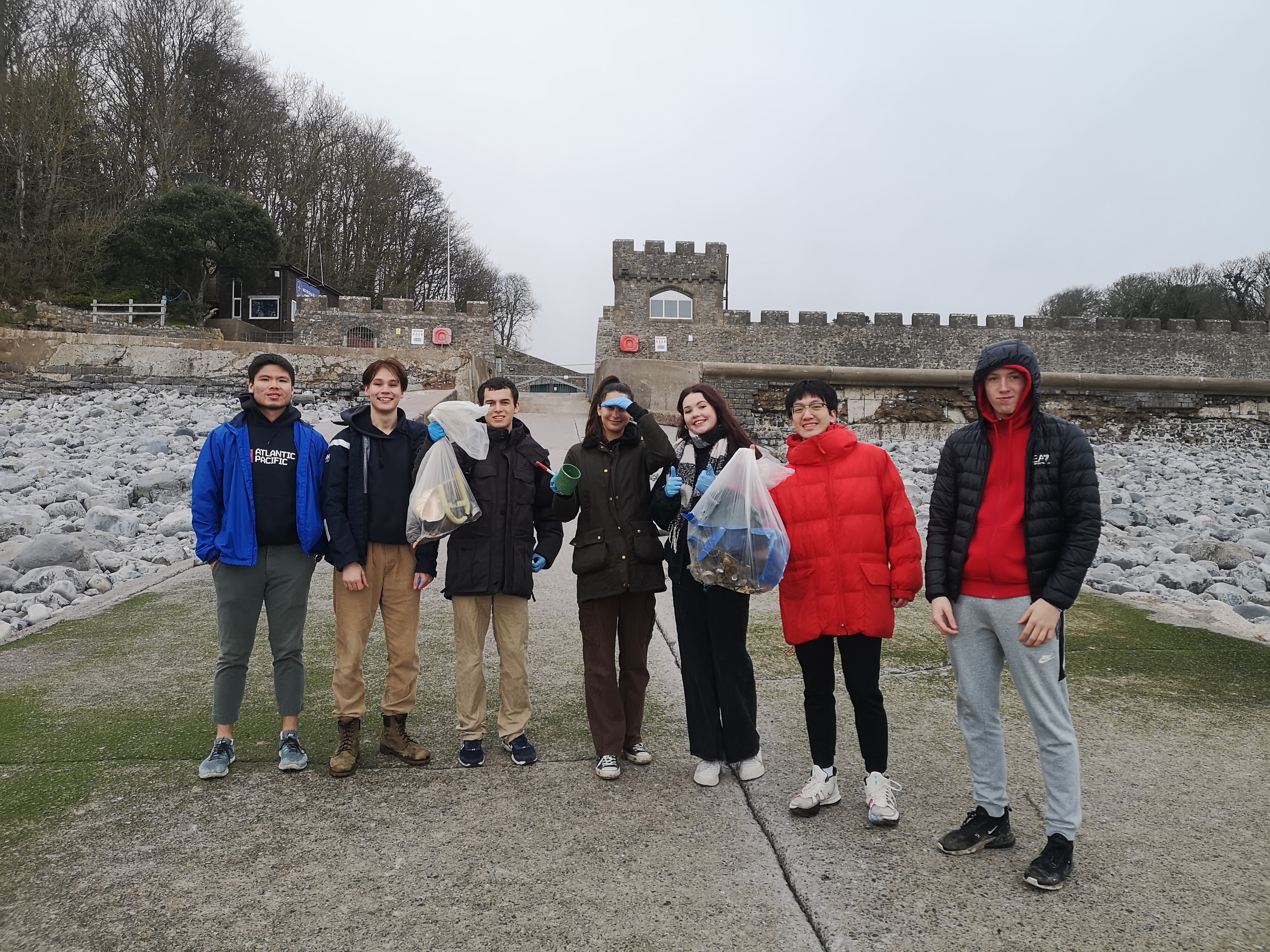
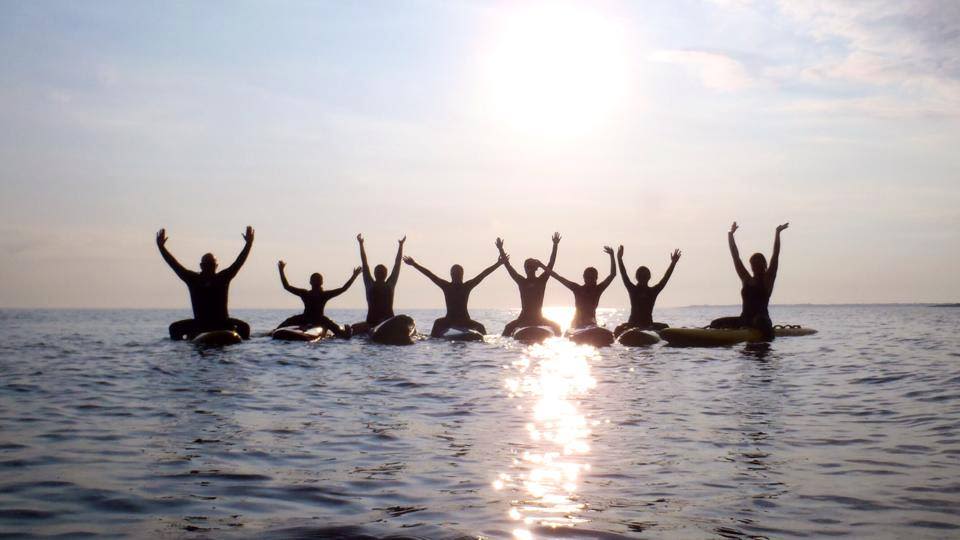
LOCAL TREE PLANTING PROJECT
We recently worked with sustainability charity Ediculture on a tree planting project in the local area. Around 20 students went to the Coed Gardens in Cowbridge to help the organisation plant 200 trees. The work is part of a wider project by Ediculture to rewild the area and improve the provision and practice of foraging, food growing and food culture. The organisation plans to plant 1,000 trees in Coed alone.
The group of students were quick to get to work and helped plant fruit trees that in a few years will protect the fields from the wind as well as provide food and shelter to animals and other wildlife.
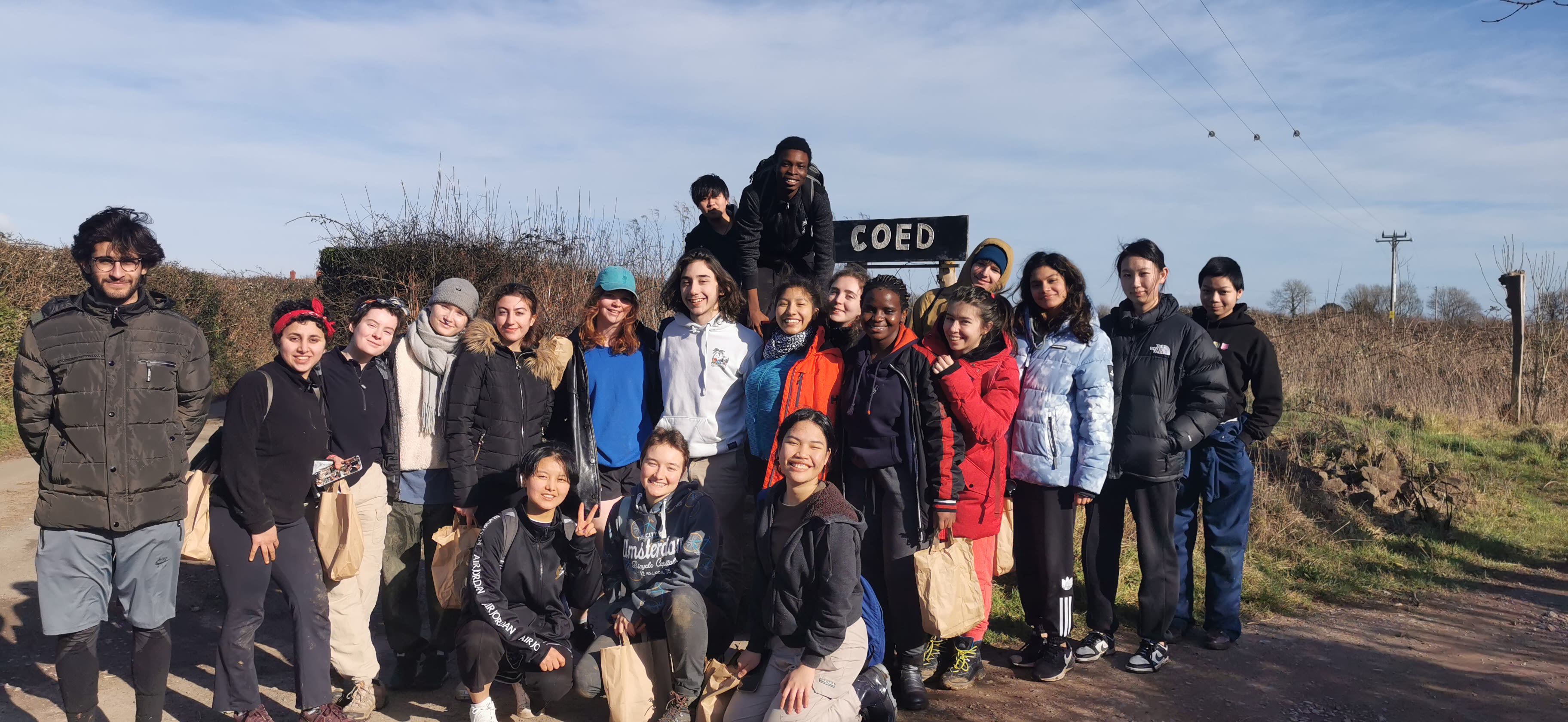
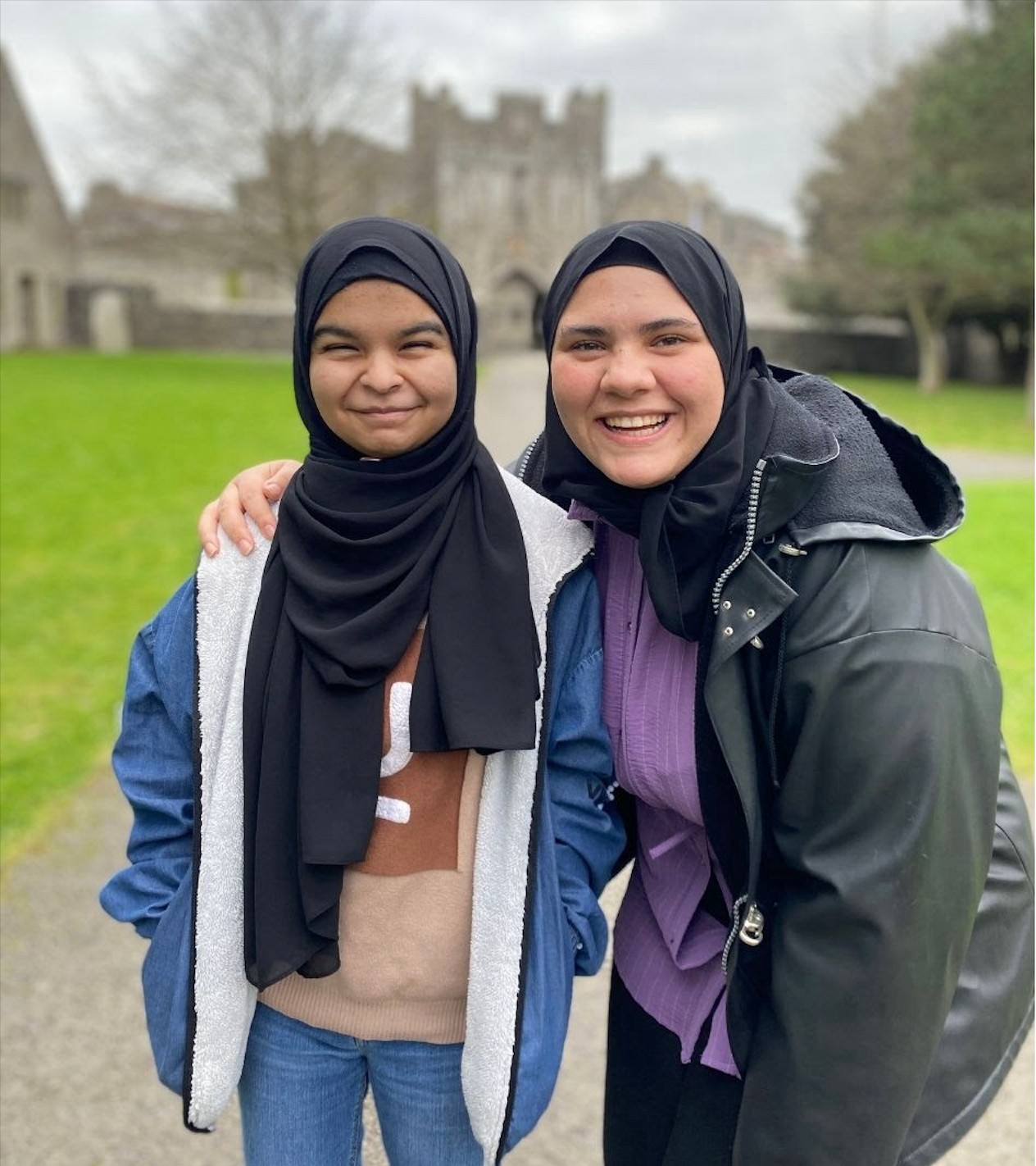
REFUGEE APPEAL
Sadly, the plight of refugees continues to be under the spotlight in the media. Refugee children are particularly vulnerable when it comes to education opportunities, with just 24% in secondary school education compared to 84% of the overall global population, according to the UN.
UWC schools around the world are continually exploring ways to support young people most vulnerable to learning inequalities, with 5% of the overall UWC student population coming from refugee or displaced backgrounds. Two such students include Zainab and Roaya (pictured), both of whom came from refugee camps in Lebanon.
Just recently we were awarded partially funded scholarships from the Shelby Davis Dare to Dream Foundation. An appeal has been launched to help secure the remaining amount needed for the scholarships, which will go towards supporting students like Zainab and Roaya living in Palestinian refugee camps in Lebanon and Syria.
“We take the values we learn here at the college and share them with our community back home. This is how change is made,” says Roaya.
To donate, please visit www.atlanticappeal.org/refugee2022.
SUMMER PROGRAMME LAUNCHES
This summer sees the return of Atlantic Experience's residential education programme for 12-18-year-olds, including outdoor activities around South Wales and English language skills.
The programme also includes a short course to help young people cultivate their leadership skills, with scholarship places available to those in financial need.
